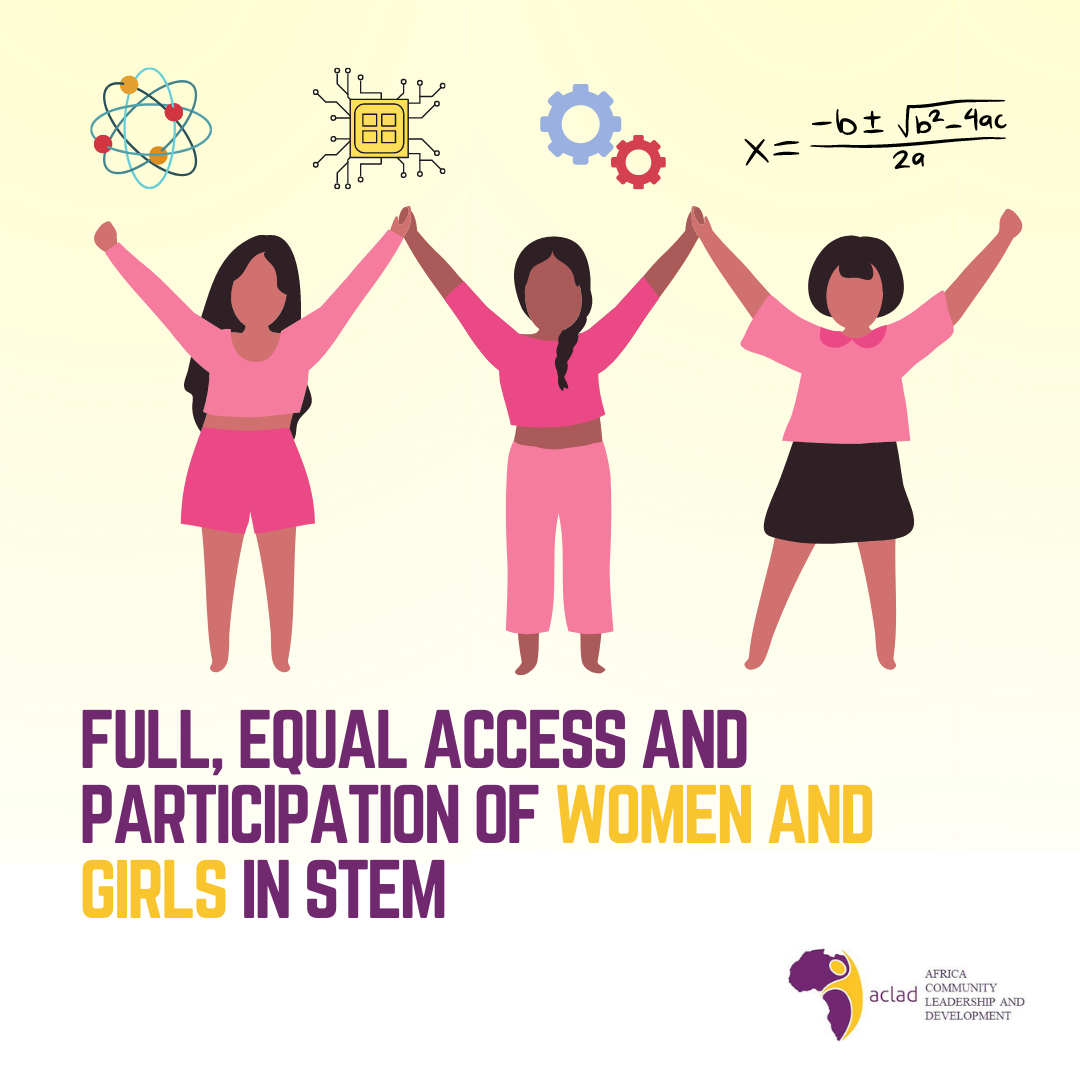Full, equal access and participation of women and girls in Science, Technology, Engineering and Mathematics (STEM)

Both gender equality and science are essential for the achievement of both the Sustainable Development Goals (SDGs) and the 2030 Agenda for Sustainable Development. The world has in the last few years made efforts toward inspiring and engaging women and girls in science and technology. Despite these efforts, women and girls continue to be excluded from participating fully in science, technology, engineering and mathematics (STEM).
The vision of STEM education, according to the Mastercard Foundation and UNESCO, is an interdisciplinary approach that allows students to apply Science, Technology, Engineering and Mathematics to solve real work problems, thereby reflecting the interdisciplinary nature of work done by STEM professionals. Under the Vision 2030 in Kenya, STEM education and training applies inter-disciplinary research in learning and understanding, STEM integration, instructor development and evaluation as well as assessment to STEM teaching from early childhood through to graduate education. Despite its bright outlook, the uptake of STEM at the different levels of education (primary, secondary and tertiary) in Kenya continues to face vast challenges in such as performance, enrolment and gender imbalance. Other challenges are unqualified or untrained teachers, insufficient learning aids and funding which leads to disinterest from the students and continuous strikes by teachers.
So as to achieve full and equal access to and participation in science, achieve gender equality and empower women and girls in science, the United Nations General Assembly declared 11 February as the International Day of Women and Girls in Science in 2015. This year, the UN theme for the day is “Equity, Diversity, and Inclusion: Water Unites Us”, in recognition of the role women and girls play in science, not only as beneficiaries, but also as agents of change, including accelerating progress towards the achievement of SDG 6 (Clean Water and Sanitation). At ACLAD, we recognize the urgency in the achievement of this SDG, and work with sponsored households and communities to enhance access to clean water, sanitation and nutrition through awareness creation and educational programs about the importance of hygiene. We also help caregivers to improve their health and that of their families through family-based health promotion, education, and nutrition interventions. In addition, we have extended existing pipelines to reach sponsored households in Ganze, Kilifi County to ensure access to safe and clean drinking water.
Catherine Muteithia
ACLAD Research and Communications Assistant
